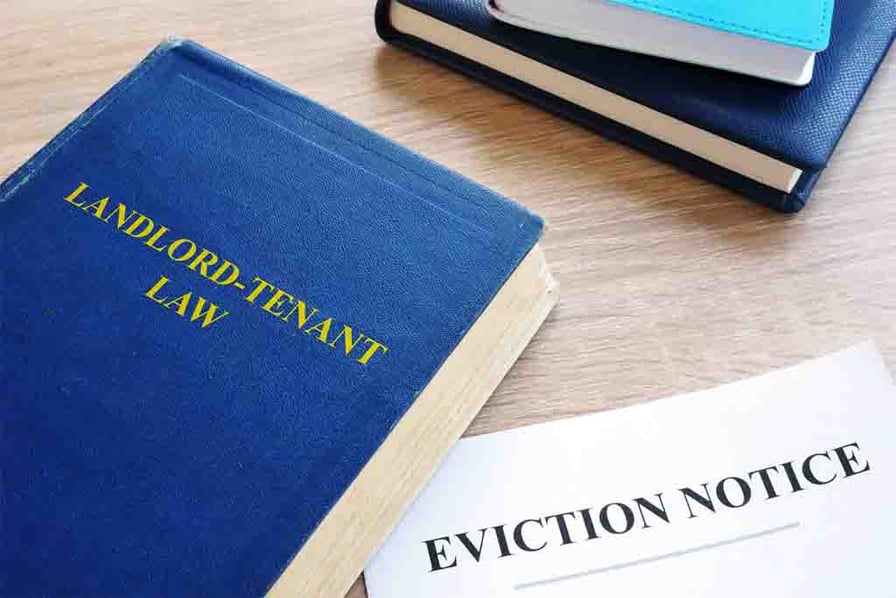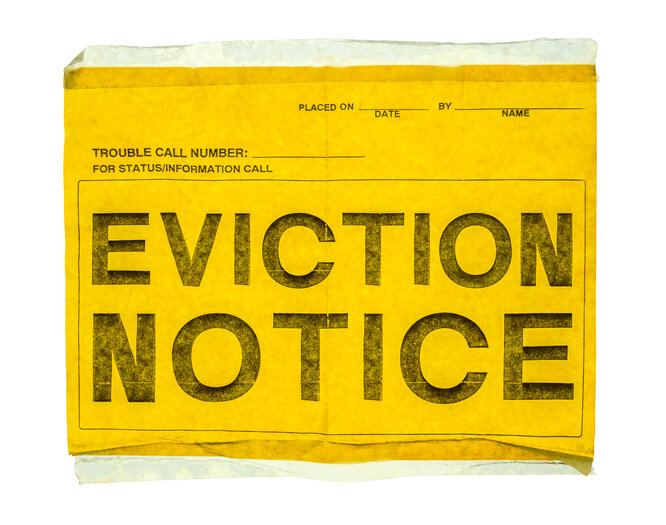As part of ABC Legal’s Deep Dives into common law, legislation and legal trends, we are diving into a series of articles on the topic of eviction. Here, we’ll be taking a closer look at the role of service of process and process servers in eviction. For a high-level look at eviction and the legal process associated with it, check out Deeper Dive: An Overview of the Eviction Process.
When to Involve a Process Server in the Eviction Process
Eviction is a legal process and as such, requires adherence to a specific set of regulations and practices. The original notice for the eviction that alerts the tenant that the landlord intends to evict them - a Notice to Quit, may be served to the defendant (tenant) by the landlord in most states. In some states, such as New York, the initial notice takes the form of a Notice to Cure or a Rent Demand and then a Notice of Termination. While not required at this stage, process servers may be utilized for this service to provide assistance or to ensure the consistency of the service.
After the period listed on the notice passes, the landlord can begin to take legal action. This legal action takes the form of a lawsuit via a Summons and Complaint or Notice of Petition and Petition. These documents inform the court of the issue, and alert the defendant to the court’s awareness of the issue, calling them to court. Once an official legal document needs to be served to the tenant, the landlord is no longer able to deliver the papers to the tenant. It is a requirement that an impartial party delivers the papers. In most states, a process server, or an officer of the law (a sheriff, marshal, or constable) must serve the paperwork.

Process Servers are also required if there is a need to add defendants to the lawsuit. For example, in California, each tenant who the landlord wishes to vacate a property must be included in the ruling of the eviction to apply to said individual. If not included on the original documents, then the court recommends having a process server serve other residents with a blank copy of a Prejudgement Claim of Right of Possession and the Summons and Complaint. Service of these documents will ensure that all residents that receive the documents can be included in the final ruling unless they petition otherwise.
What are the Consequences of Improper Service?
Process servers are required for the delivery of legal documents. Improper service is a common way that a tenant can build a defense against an eviction case. If the defendant claims they were improperly served, the person who served must testify in court regarding how the tenant was served to prove that the eviction was properly served. A case with improper service can be dismissed by the judge. The landlord would then be required to file proper paperwork and bring the tenant back to court to continue the eviction process.
How is Proper Service Defined?
Most states accept several forms of service, which are to be completed by a process server. The two most widely accepted are Personal Delivery and Substitute Service. These methods describe the serving of documents directly to the defendant, or a suitable/competent resident of or worker within the household.
- Personal Delivery: An adult (not the landlord or owner) delivers the papers gives the tenant a copy of the papers
- Substituted Service: An adult (not the landlord or owner) delivers the papers to a resident of reasonable age and mails two copies of the Notice of Petition and Petition to tenant by both regular and certified mail by the next business day
Most states allow for a third delivery method, but the method can vary by state. The final option provides an option for leaving the notice or sending it by mail after the process server has made multiple, qualified attempts. Two examples of how different courts define a third method include Conspicuous Service and Posting and Mailing. Examples of how these methods can be defined by courts are provided below, taken from New York’s and California’s guidelines.
New York’s courts define conspicuous service as:
- Conspicuous Service: After making one attempt to deliver the papers to a resident of suitable age or someone who works at the apartment, once during working hours and once outside of working hours, an adult (not the landlord or owner) tapes the notice to the door or places it under the door and mails two copies of the Notice of Petition and Petition to the tenant by both regular and certified mail by the next business day
California's courts describes posting and mailing as:
- Posting and Mailing: After failing to serve the documents via Personal Delivery and Substitute Service, the server must write a declaration to the court of the attempts, and the judge may allow the landlord to serve by posting and mail. The landlord may then post a copy of the Summons and Complaint on the property in question, and send a copy by certified mail.
Best Practices in Service of Process for Eviction
Evictions are stressful for the landlord and the defendant. It is important to be professional and courteous, providing the best experience and service of process for any legal document. Best practices for service of process include:
- Be aware of any special regulations for serving eviction notices in the state.
- Consider calling a phone number if someone does not approach the door after knocking.
- Be sure to adhere to any current public health and safety guidelines in place. (See ABC Legal’s COVID-19 Safe Service Procedures)
- Remain neutral, if not friendly and keep interactions respectful.
- If regulations allow the physical posting of a document, be certain to not disrupt or damage property.
Handling evictions lawsuits in accordance with local laws is essential to managing a highly emotional situation in the most efficient manner, reducing chances for misinformation, misunderstandings and improper conduct. Process servers can help keep legal processes in line and make a tense interaction less volatile.
For more information regarding process servers and service of process, visit www.abclegal.com.
About ABC Legal Services
ABC Legal is the nation’s leading service of process and court filing company and is the official process server to the U.S. Department of Justice. Docketly is a subsidiary of ABC Legal, providing appearance counsel on a digital, custom-built platform that smoothly integrates with our applications and services. ABC Legal’s applications are cloud-based and compatible for use on desktop, browser, and smartphones. Our solutions and digital approach ensure process server partners, law firm customers, and their clients save valuable time and resources when serving legal notices safely and with maximum compliance, control, and transparency. ABC Legal is based in Seattle, WA, with more than 2,000 process servers throughout the U.S., as well as internationally in more than 75 countries. To learn more about ABC Legal, our solutions, and subsidiary company Docketly, visit www.abclegal.com.

Written by
Heather ThomasSubscribe to email updates
Recent Posts
- 7 Ways ABC Legal Benefits Accounting Teams
- Streamline Civil Law Cases With Reliable Service of Process
- Insights from MTMP 2025: Legal Innovation, Connections & a Little Star Power
- Streamline IP Law Cases With Reliable Service of Process
- ABC Legal Issued US Patent Secure Service Recipient Online Portal






